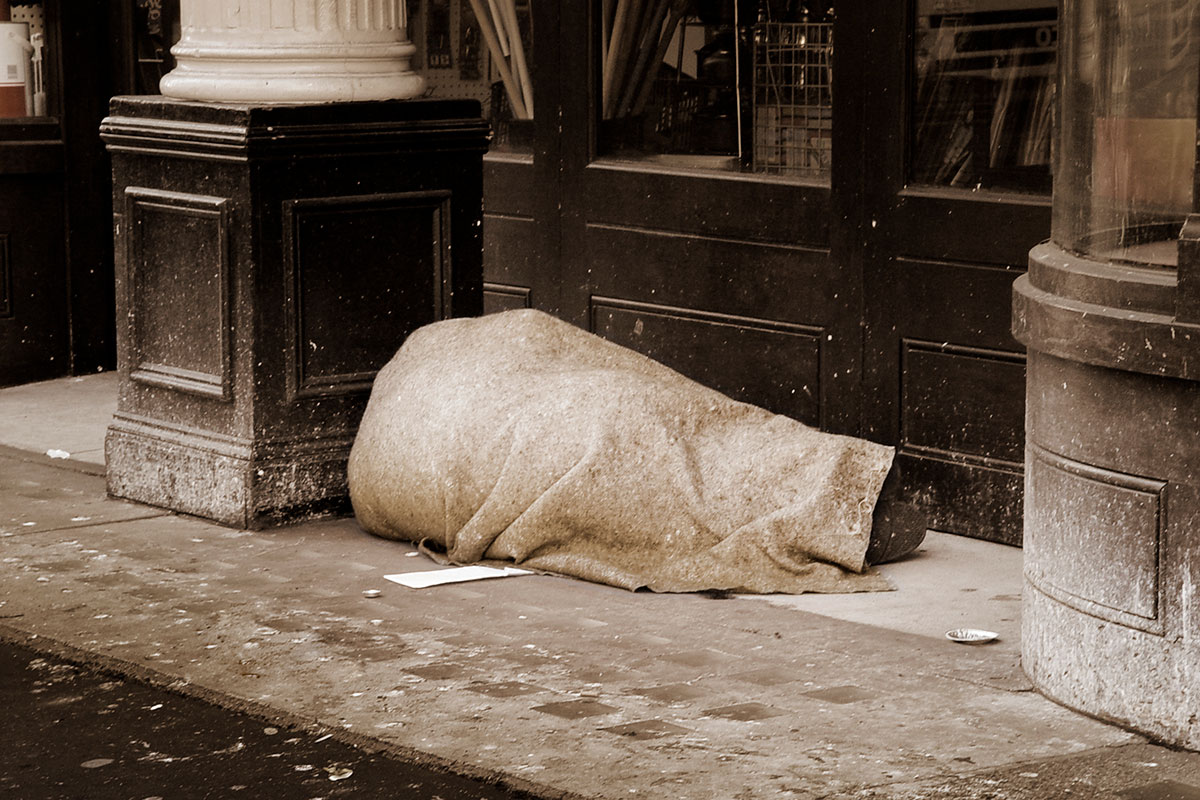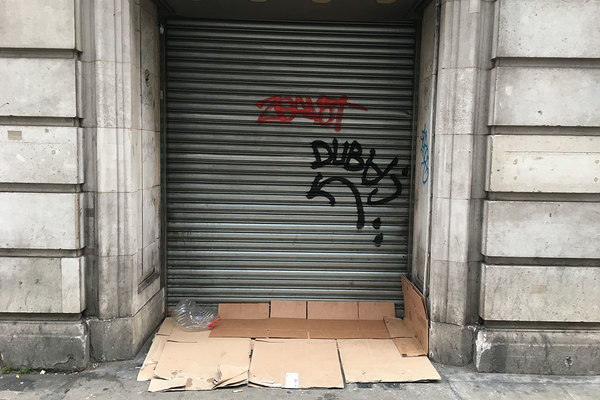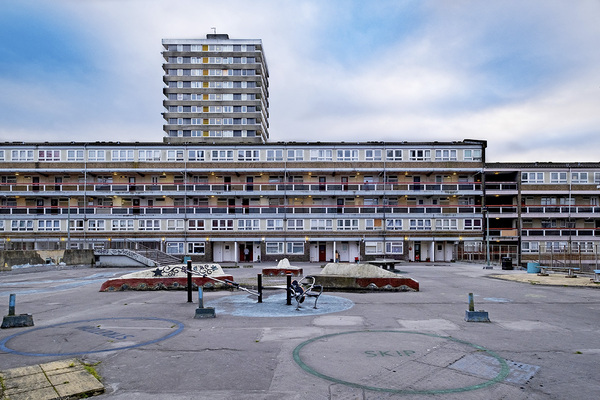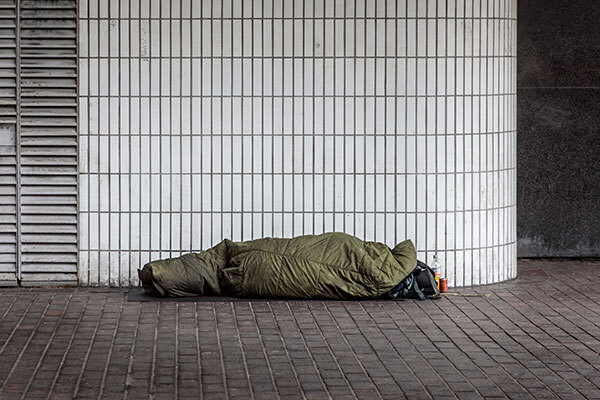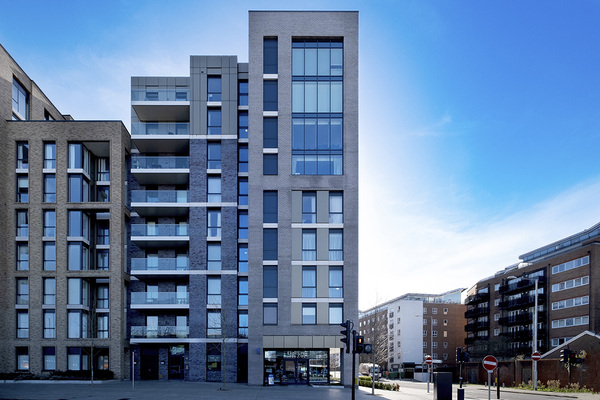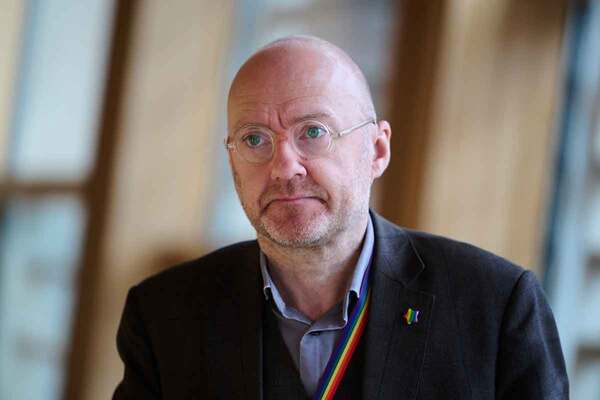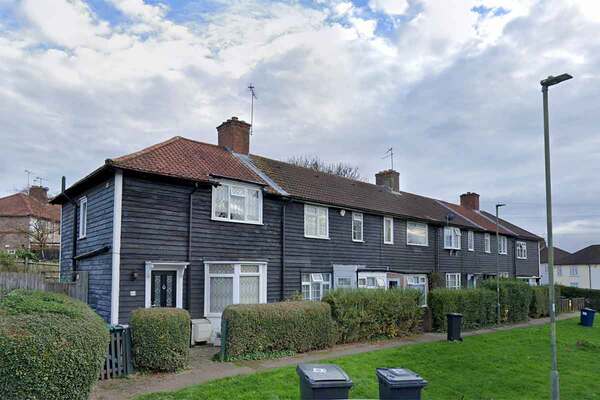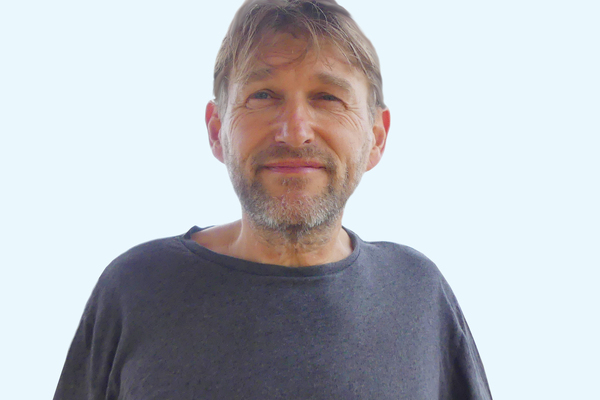You are viewing 1 of your 1 free articles
Homeless deaths surge by 80% in two years
The number of people dying while experiencing homelessness increased by 80% over the past two years, new research has found.
An annual piece of work by the Museum of Homelessness (MoH), named the Dying Homeless Project, found that 1,286 people died while homeless across the UK in 2021 compared with 710 in 2019.
The numbers, which include people sleeping rough and those placed in emergency accommodation, increased by 32% from 2020 to 2021, with a death now occurring on average every seven hours.
The research also suggested that more than 90% of deaths in the cases where the researchers knew of a person’s situation occurred after they were placed in insecure accommodation.
It follows on from last year’s figures, which showed that deaths increased by a third in 2020 despite the Everyone In programme that saw rough sleepers provided with hotel accommodation during the pandemic.
Findings showed a spike of deaths in Northern Ireland, where fatalities tripled in a year to 325.
Significant increases were also recorded in Glasgow, Edinburgh, Bedford, Southampton and London boroughs such as Enfield, Westminster and Tower Hamlets. Only seven fatalities were due to coronavirus.
Wales saw a decrease in homeless deaths from 63 in 2020 to 60 in 2021; Scotland went from 176 to 182; and England went from 630 to 719.
The charity said that cuts to mental health and addiction services mean too many people do not get the support they need.
Of the cases in which it confirmed the cause of death, 41% were related to drug and alcohol use and 12% died from completing suicide.
Jess Turtle, co-founder of MoH, said the findings were a “hammer blow”.
She said: “It’s heartbreaking to see so many people dying and to feel so helpless in the face of such a serious emergency.
“Government neglect means things keep getting worse with new provision for mental health, addiction and social housing failing to make up for previous cuts.
“If the government took this situation seriously, it wouldn’t have slashed the budget for Discretionary Housing Payments by over a third last month, making it harder for councils to offer the people the breathing space they need to avoid homelessness.”
Ms Turtle added that reversing the £40m cut and ending the freeze on Local Housing Allowance rates “should be immediate priorities so that people have a fighting chance of meeting the spike in private rents”.
She said: “There needs to be a confidential inquiry into the deaths of homeless people to allow an honest appraisal of what’s happening to the UK’s most vulnerable people.
“There should also be mandatory fatality reviews for all local authorities, so lessons can be learned from each death.”
Matt Turtle, co-founder of MoH, said too many people are dying in “dangerous accommodation run by unregulated landlords and funded by the taxpayer”.
He added: “Our research suggests over 90% of deaths in the cases where we know of a person’s situation occurred after they were placed in insecure accommodation.
“These often occur in taxpayer-funded hostels which are exempt from the price cap local authorities apply to shared accommodation as they are meant to provide people experiencing homelessness with care as well as safe place to live temporarily.
“But many fail to meet their most basic obligations.”
Mr Turtle urged the government to “urgently regulate” exempt accommodation providers.
Earlier this month, rough sleeping and housing minister Eddie Hughes unveiled a long-awaited package of measures to tackle “unscrupulous” landlords operating supported housing, which could include new laws.
He said the government would also provide £20m for a three-year Supported Housing Improvement Programme as part of the crack down.
A spokesperson for the Northern Ireland Housing Executive (NIHE) said; “When a person presents to us as homeless, we respond in accordance with the relevant legislation and commence our enquiries.
“There are currently just over 23,000 households on the waiting list in Northern Ireland that we have assessed as being statutorily homeless.
“Of these 23,000 households on the waiting list, around 3,500 of them are in temporary accommodation at any one time.
“This number has increased over the last two years due to the pandemic.
“Data collected by the Housing Executive on homelessness in Northern Ireland is not directly comparable with any other jurisdiction due to the methods we use to collate data.
“Specifically, the data provided for Northern Ireland refers to the date on which an application for housing was cancelled due to the death of an applicant who was statutorily homeless.
“It should be noted that, following a data exercise in conjunction with National Fraud Initiative, a number of cases which had not been counted in previous years are included in last year’s figures.
“Therefore, the cases of cancelled applications appear higher when compared to previous years.”
Scottish housing secretary Shona Robison said: “Every single one of these deaths is a tragedy.
“While it is hard to measure homeless deaths precisely, these findings are concerning
“We are investing £100 million between 2018 and 2026 to take forward our Ending Homelessness Together action plan.
“As part of this, we have committed £52.5m towards rapid rehousing transition plans and Housing First, to provide people with settled accommodation.
“Scotland already has some of the strongest homelessness rights in the world, and we are working to strengthen these even further.”
Ms Robison said Scotland will be introducing new laws to prevent homelessness before it occurs, and improving co-operation between health and housing services, with specific measures to help those with more complex needs.
“The first minister has declared a national mission to cut the number of drug-related deaths in Scotland, with funding of £250m over the next five years and a priority of getting more people into the treatment that works for them as quickly as possible.
“We are also funding a £900,000 project to promote more integrated responses across homelessness and substance use services,” she added.
A Department for Levelling Up, Housing and Communities (DLUHC) spokesperson said: “Every death on our streets is a tragedy.
“ Our most recent statistics published by the ONS estimated that homeless deaths decreased by 12% in 2020 compared to the previous year.
“Even one death is one too many, which is why councils will receive £2bn over the next three years to support the homeless.
“We also are working closely with the health and care sector to ensure people sleeping rough get the support they need for substance misuse and mental health assessments.”
Sign up for our homelessness bulletin
Already have an account? Click here to manage your newsletters
